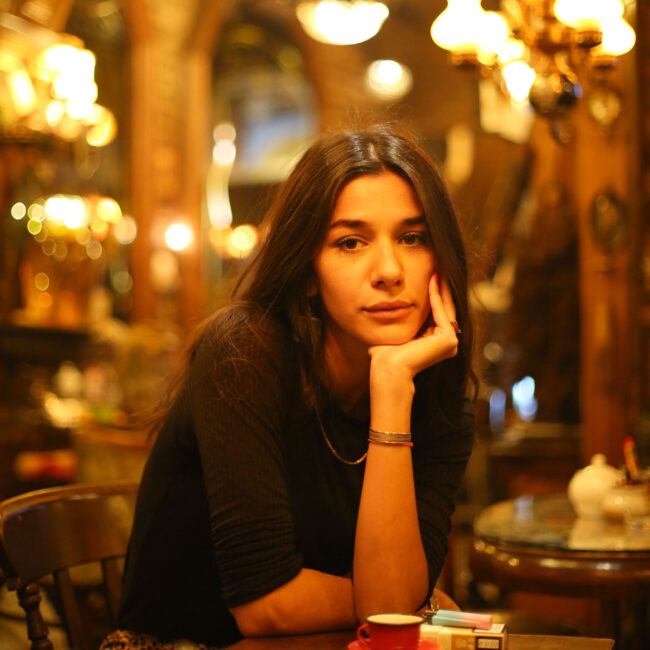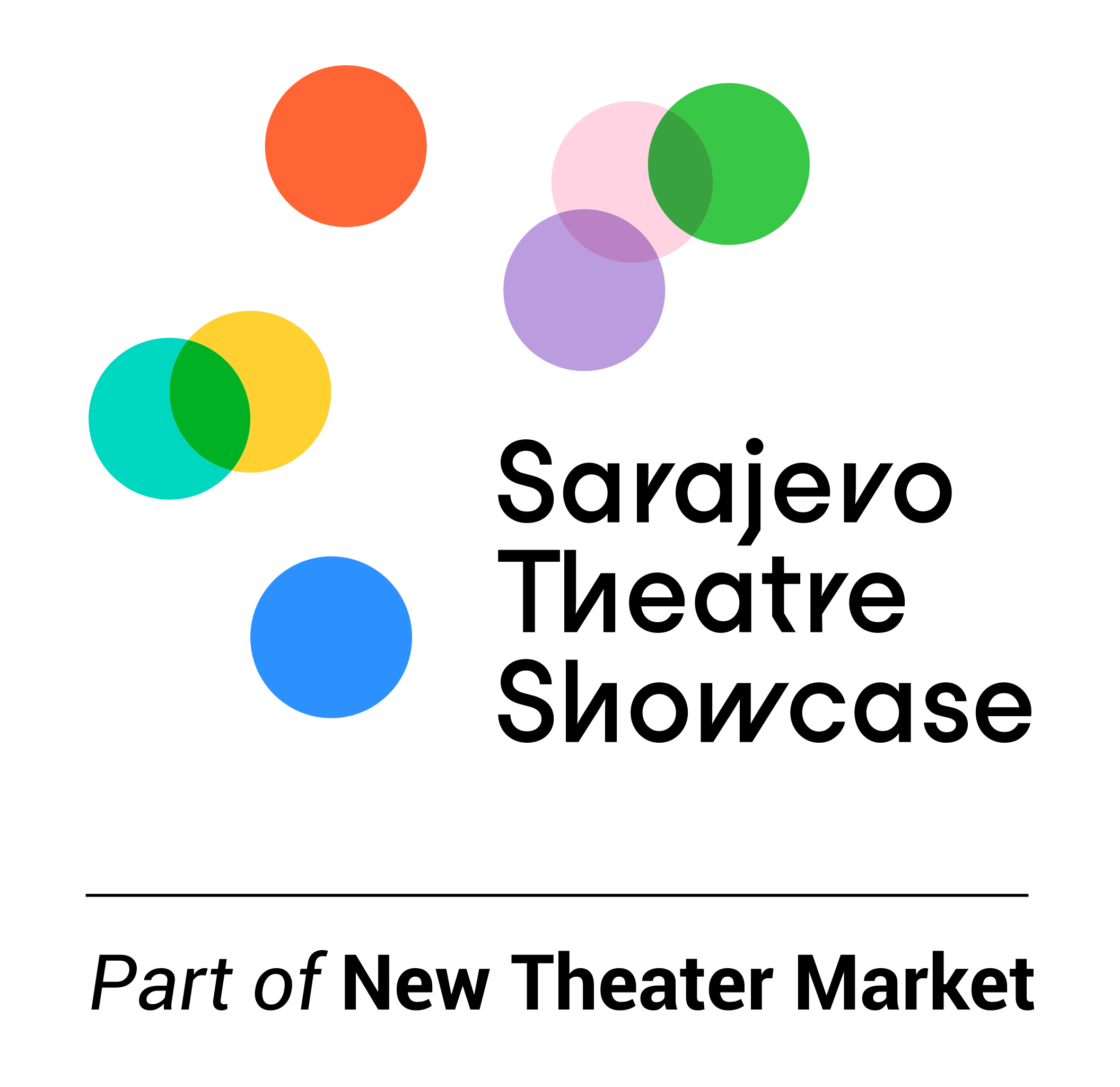


© 2025 Studio Mater.
All rights reserved.

Heads of Studies
Selma Spahić
Branislav Cerović
Natasha Tripney
Participants Directors
Skender Podvorica
Patrik Sečen
Hana Rastoder
Luka Jovanov
Ajla Bešić
Boris Vasileski
Maša Pavlović
Participants Producers
Anja Kasalović
Sonja Đurić
Ksenija Milutinović
Adi Glavinić
Andrea Markoska
Ajdin Aldobašić
Participants Critics
Katerina Markoska
Đorđije R. Radulović
Matea Fajković
Ana Matić
Nikola Stanišić
Berina Mušanović
Residency
An intensive five-day program in Sarajevo designed for 30 emerging theater professionals from Southeast Europe. Combining practical workshops, mentorship sessions, and networking opportunities, the residency enables participants to develop their skills, expand their networks, and explore new approaches to theater-making under the guidance of experienced international mentors. The Residency program will be taking place from the 9th to the 14th of September.

Directors
Residency for Directors provides emerging directors with a supportive laboratory to question, test, and refine their artistic practice, under the guidance of Selma Spahić. At its core is a three-day intensive workshop with Nina Rajić Kranjac, dedicated to developing individual theatrical language through hands-on work with actors. The programme further includes talks, peer exchanges, and meetings with producers, offering participants valuable insights and new professional connections.
Selma Spahić
Selma Spahić is a theatre director who has staged 40 productions in Bosnia and Herzegovina, Croatia, Serbia, Montenegro, Slovenia, and Germany. Her work spans classical and contemporary plays, novel adaptations, devised theatre, as well as documentary and community-based projects. She teaches at the Academy of Performing Arts in Sarajevo.
_________
Statement
Let’s work on it. Get stuck. Sit with it. Feel unsure.
Come up with ideas. Try them. Pull them apart.
Get excited. Make something. Feel good about it.
Then not so sure. Get tired. Feel hopeful again.
Let’s ask questions—and question the answers—about theatre.
_________
Photo credit: Dragan Mujan
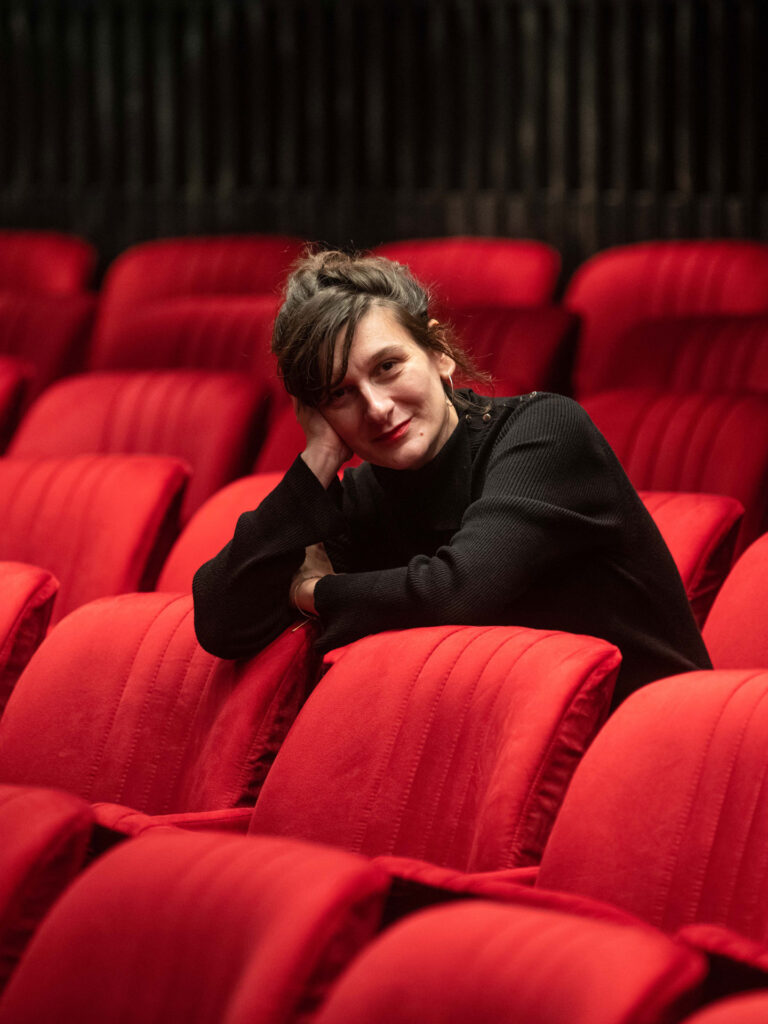

Head of Studies
Participants:
Maša Pavlović
Maša Pavlović is a multimedia directress who graduated from the Academy of Arts in Novi Sad Serbia, working in theatre directing and documentary short film. She is currently pursuing her Master’s studies at the same academy, focusing on documentary theatre and dramaturgy.
_________
I hope the program will offer space for honest dialogue, reflection, and shared questioning with peers and mentors as I find my way through the messy, exciting beginnings of a directing career.
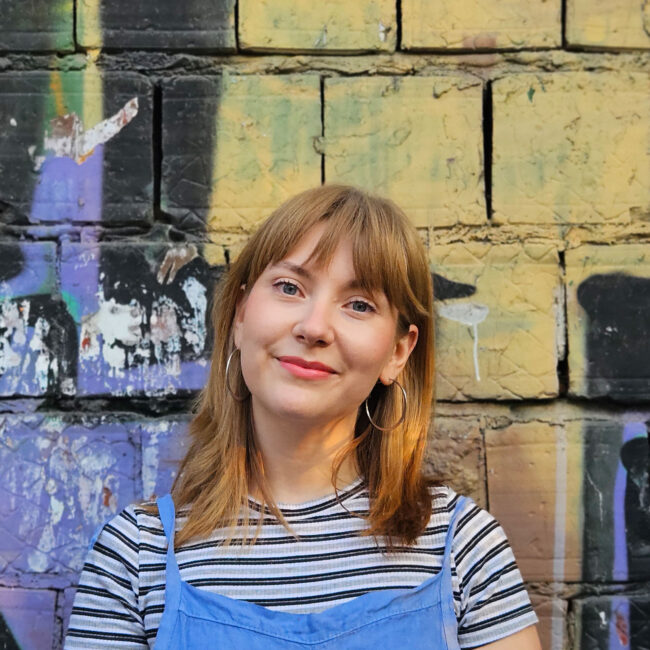

Hana Rastoder
Hana Rastoder completed bachelor and master studies in theater directing at the Faculty of Dramatic Arts in Cetinje. In her master plaz „671-HUNT“, she deals with the war crime that happened on February 27, 1993 in Štrpci.
_________
I expect that new acquaintences and new knowledge that I will acquire during the residency will help me on the way of discovering my own, authentic approaches to dramatic art.


Skender Podvorica
Skender Podvorica, born on December 3rd, 1995 in Podujeva and currently based in Pristina, pursued studies in Applied Psychology and holds both a Bachelor's and Master's degree in Theatre Directing from the Academy of Arts. He has been involved in numerous local and international theatre productions.
_________
I expect the Residency for Directors programme to provide a collaborative and exploratory space where I can deepen my artistic voice, engage with international theatre professionals, and gain practical tools for developing future projects.
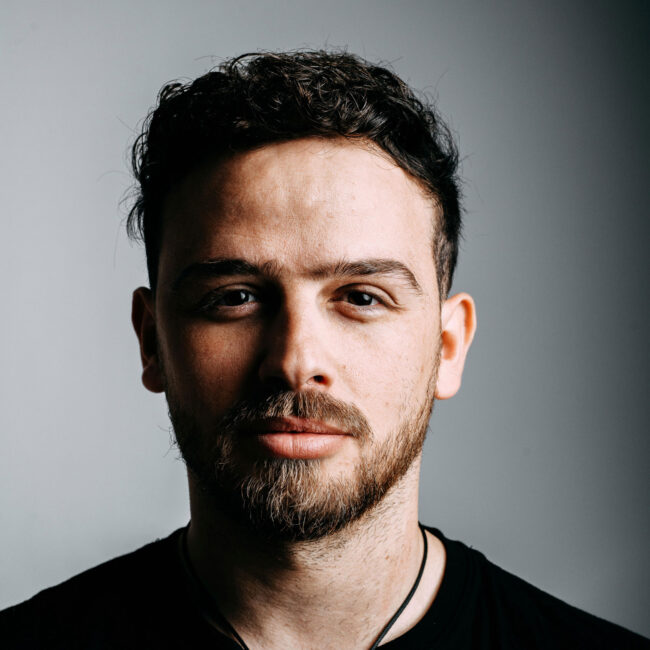

Ajla Bešić
Ajla Bešić (Zenica, 1999.) graduated in Multimedia Directing from the Academy of Performing Arts in Sarajevo. She has directed several theatre plays, performances, and staged readings of plays, and has worked as an assistant director in both theatre and film.
_________
I expect to gain a new perspective on the theatrical process.
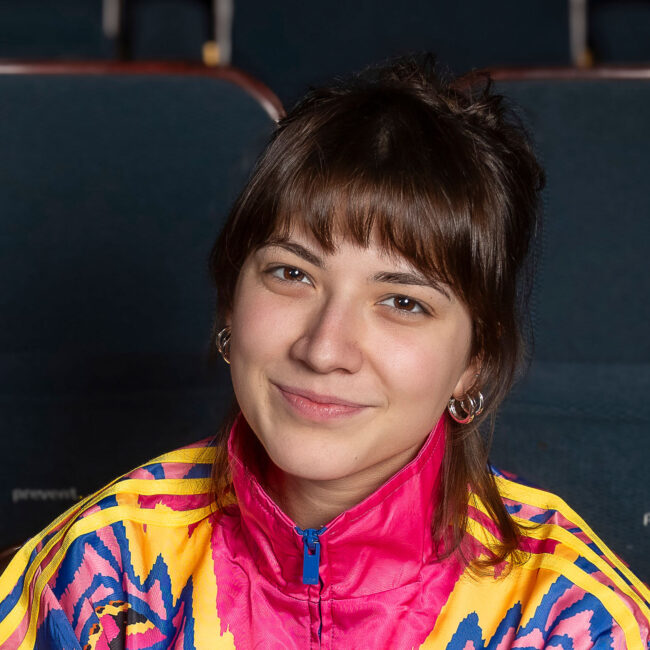

Luka Jovanov
Luka Jovanov, theater director, worked in various drama and dance projects. Interested in making theater ideological, not political.
_________
I expect to be part of the engaging and thought provoking process at STS residency program.
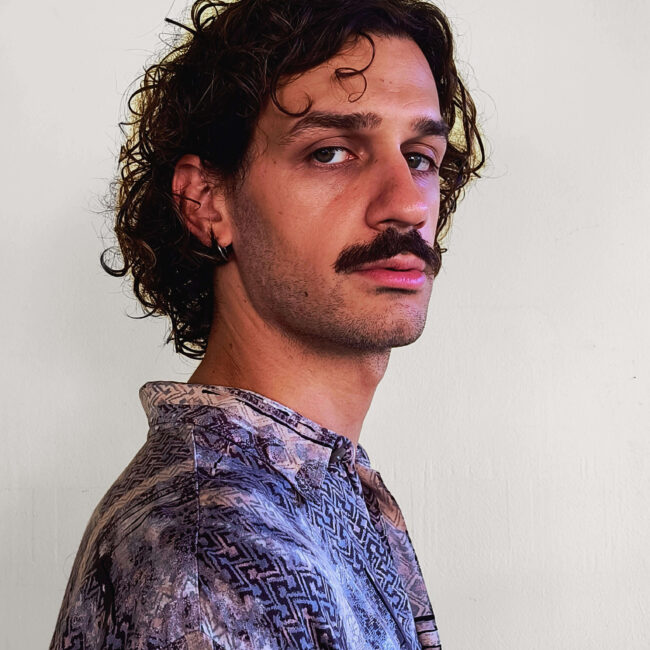

Boris Vasileski
Boris Vasileski is a theatre director from North Macedonia, working across national theatres and the independent scene with a focus on contemporary dramaturgy andthe physical presence of the actor on stage. His work explores themes of identity, memory, and the tension between tradition and modernity, aiming to create spaces for dialogue and reflection.
_________
I look forward to using the residency as a space for reflection, exchange, and critical dialogue, while connecting with regional peers to explore shared concerns and future collaborations.
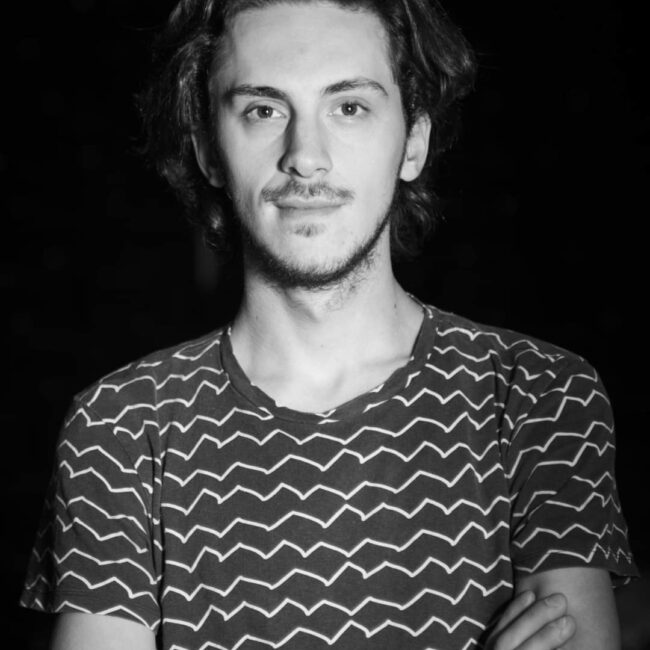

Patrik Sečen
Patrik Sečen is a theatre director based in Zagreb. His work focuses on the question of belonging across different social contexts.
_________
I am looking forward to a sincere conversation about the needs of young artists.
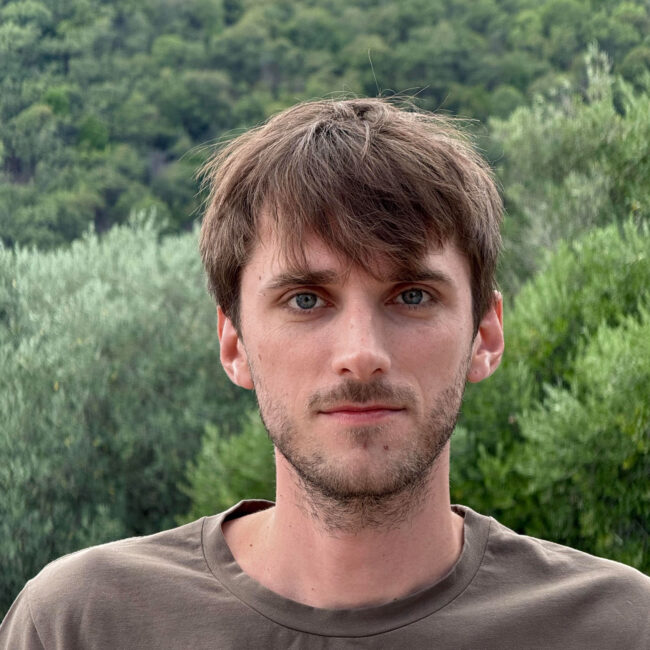

Producers
Residency for Producers is a programme tailored for early-career producers, offering practical training in launching projects, managing rights, and navigating institutional systems. Under the guidance of Branislav Cerović, participants explore real-world production models through workshops, study visits, and masterclasses. The programme also includes masterclasses with regional professionals and opportunities for peer exchange within the Showcase.
Branislav Cerović
Branislav Cerović is a theatre producer with over 25 years of experience. He has worked on more than 100 diverse theatre projects, from children’s plays and post-drama theatre projects to large-scale musicals, working with major institutions across Southeast Europe. Currently based in Ljubljana, he works as executive producer at Mini teater, continuing his long-standing engagement with culture, fashion, and the arts.
_________
Statement
How to produce fearlessly: Sarajevo 2025 Residency Program for the creative minds behind the stage.
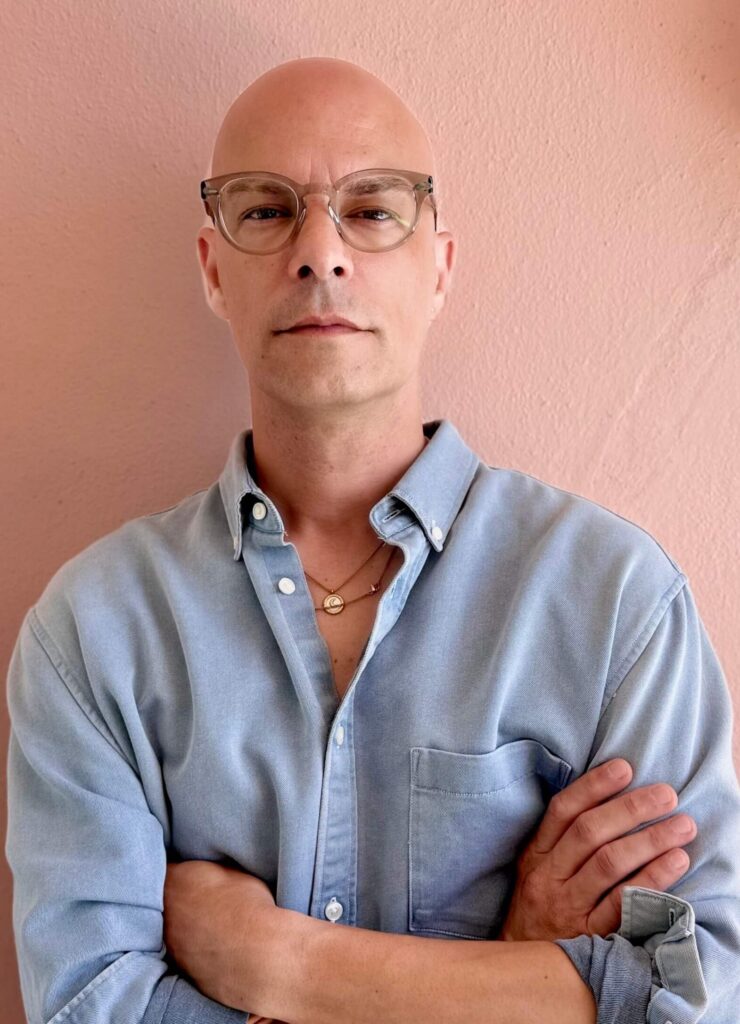

Head of Studies
Participants:
Denis Krdžalić
Denis Krdžalić is a theatre producer and cultural manager, currently serving as Executive Producer at the Bosnian National Theatre Zenica, where he has led over 40 productions and major cultural events. He is also active in academia and international collaborations, including as lead project manager of the Creative Europe-funded Sexual Theatre: A Feminist Reading of Classics.
_________
I hope to deepen my professional practice through meaningful mentorship, expand my network within the regional and international theatre community, and explore innovative, sustainable approaches to collaborative theatre-making.
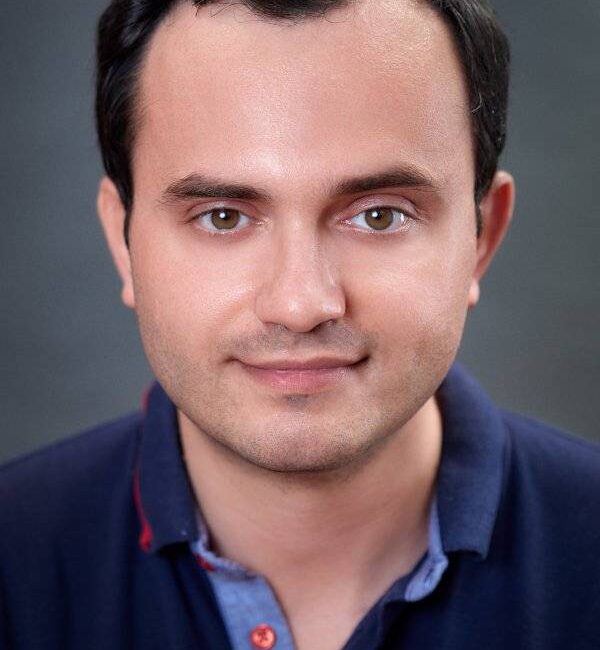

Anja Kasalović
Anja Kasalović, an emerging theatre and film producer from Banja Luka, currently studying production at the Academy of Arts, University of Banja Luka. She is actively involved in the production of films, theatre productions, and cultural events, with a strong interest in collaborative artistic projects.
_________
I hope to gain new perspectives, connect with inspiring regional and international artists, and meet people with whom I can share ideas, grow creatively, and hopefully collaborate on future projects.
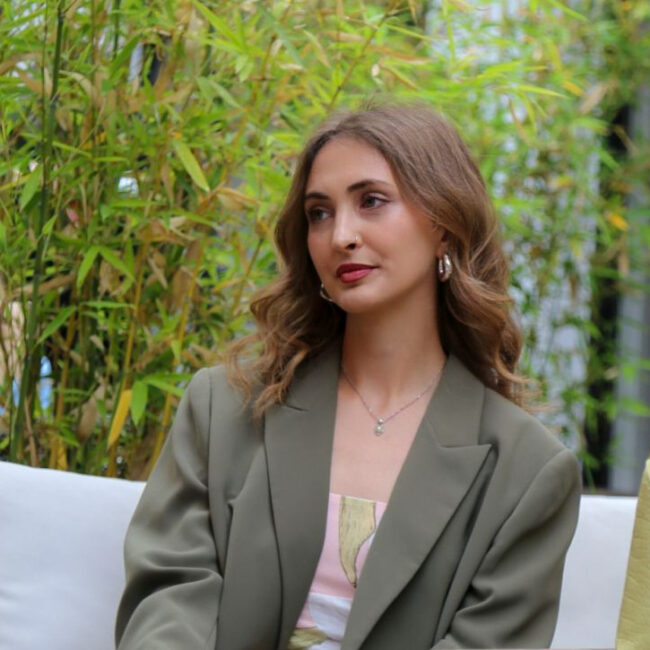

Sonja Đurić
Sonja Đurić is a producer, cultural manager and assistant professor at the Academy of Arts, University of Banja Luka, with a Master's in Cultural and Media Management and ongoing PhD studies at the Faculty of Dramatic Arts in Belgrade. She has led and contributed to numerous regional cultural initiatives, festivals, and projects, and is the founder of the cultural association CreArt and production company Sonet.
_________
Through this program, I hope to deepen my creative practice, discover new ways of thinking and making, and engage with a vibrant community of artists and professionals, not only to shape and elevate my own projects, but also to carry that inspiration into the spaces where I teach, collaborate, and imagine new possibilities alongside fellow creatives.


Ksenija Milutinović
Ksenija Milutinović is a theater and cultural producer based in Belgrade, currently working at Heartefact on contemporary performances that explore gender, memory, and identity. Her work spans regional and international collaborations, with a strong focus on socially engaged art, LGBTQ+ rights, and inclusive cultural practices.
_________
I hope to learn best practices and practical know-how from experienced peers, particularly in the areas of different production models and international project development.
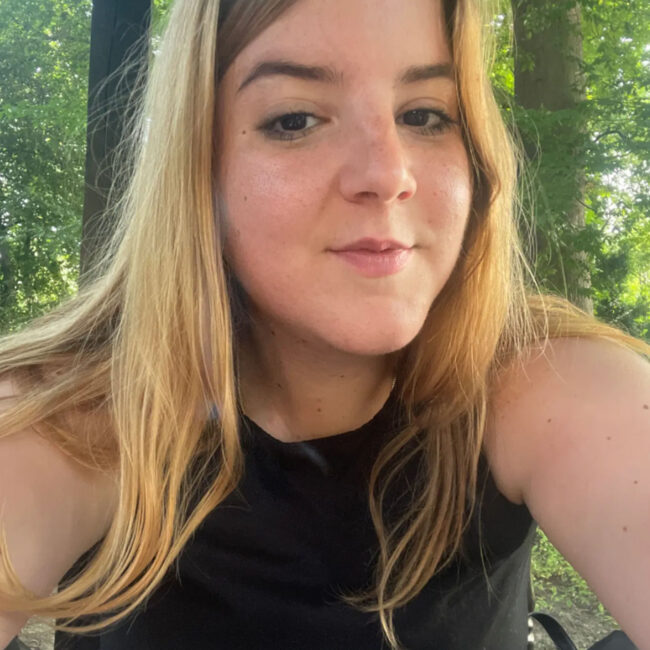

Ajdin Aldobašić
My name is Ajdin Aldobašić, a young cultural worker, photographer, and production student at the Academy of Dramatic Arts in Tuzla. With a background in amateur theater, volunteer work, and artistic photography, I am actively involved in various cultural projects across Maglaj and Tuzla, including youth theater, festivals, and community initiatives.
_________
Through this program, I hope to gain valuable professional experience, expand my creative network, and further develop my skills in cultural production and project management.
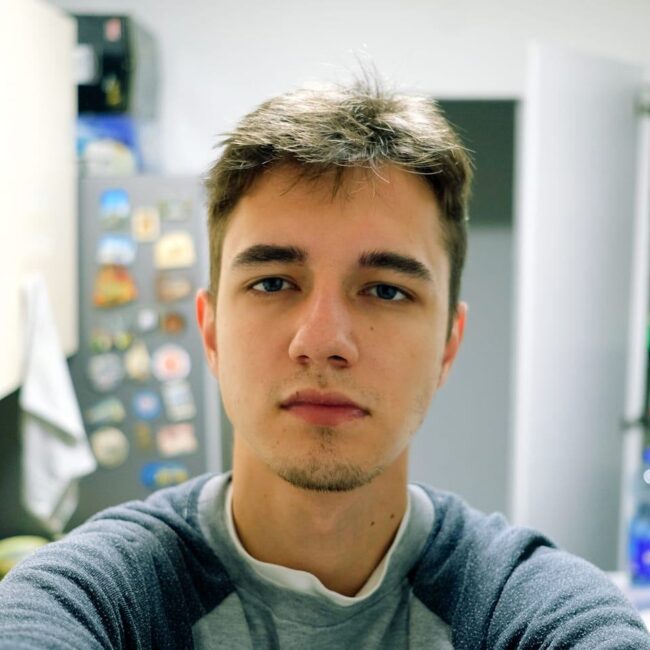

Adi Glavinić
Adi Glavinić is a graduate producer, artist and social activist from Bosnia and Herzegovina, who, through the Association "Applause", promotes children and youth in the field of culture and art. His work includes the production of theater plays, films, and educational programs with the aim of social change and youth empowerment.
_________
I expect the STS Residency Program to provide me with a collaborative and inspiring environment where I can strengthen my existing platform, connect with regional artists, and learn sustainable practices for building a more competitive and impactful organization.
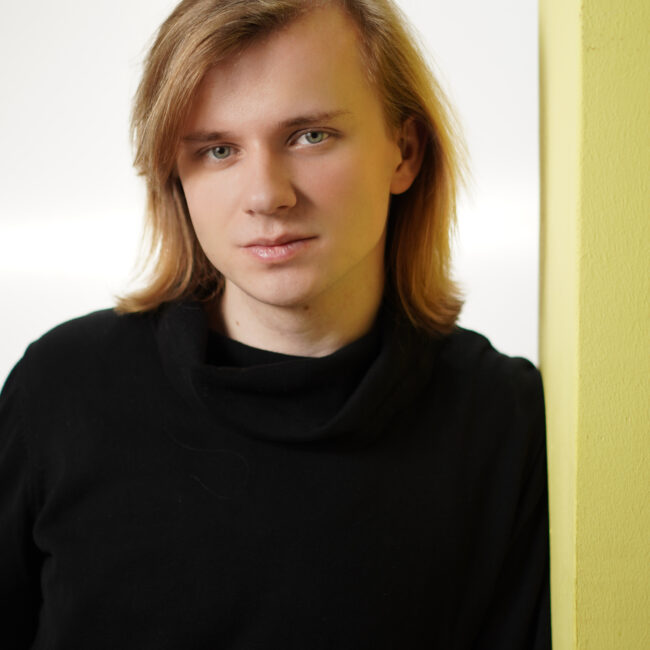

Andrea Markoska
Andrea Markoska is an emerging film and theatre producer from North Macedonia, producer of the independent theatre Schtrich from Skopje. She also works on festivals such as the National Theatre Festival "Vojdan Chernodrinski" and film productions. She has produced theatrical performances, short films, and international projects such as the Under 600 platform,
_________
I expect this residency to strengthen my production skills and provide valuable networking opportunities with fellow emerging producers, while offering insights into production models that will support my growth as a producer.
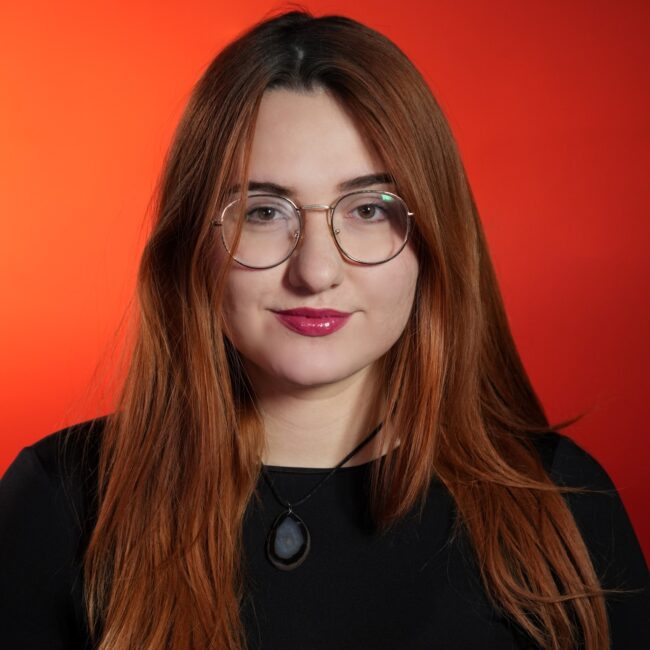

Critics
Residency for Critics offers theatre critics a dedicated space to reflect on the role and responsibility of criticism today, guided by Natasha Tripney. The programme blends practical sessions on review writing and media practice with group discussions, peer feedback, and informal reflections on STS performances. Through masterclasses, talks, and exchanges with regional and international professionals, participants gain deeper insight into contemporary criticism while producing original written work during the Showcase.
Natasha Tripney
Natasha Tripney is a writer, editor and critic based in London and Belgrade. She is the international editor for The Stage and editor-in-chief of SEEstage.org, an English language platform for theatre criticism in Southeast Europe. She co-founded Exeunt, an online portal for theatre criticism and is a regular contributor to the Guardian and BBC Culture, and has written for the London Evening Standard, New York Times, Index on Censorship and Kosovo 2.0
_________
Statement
What is the role of the theatre critic in the 21 st century? Is theatre criticism dying, or has it already expired? Over the next few days, we will look at what writing theatre criticism involves, from a practical and creative perspective. How do you write a review of a performance? How do you capture something transitory on the page? What are the responsibilities of a critic? What outlets are there for getting your work published? Together, we’ll explore the relationship between artist and critic and the evolving role of the theatre critic in a shifting media landscape.
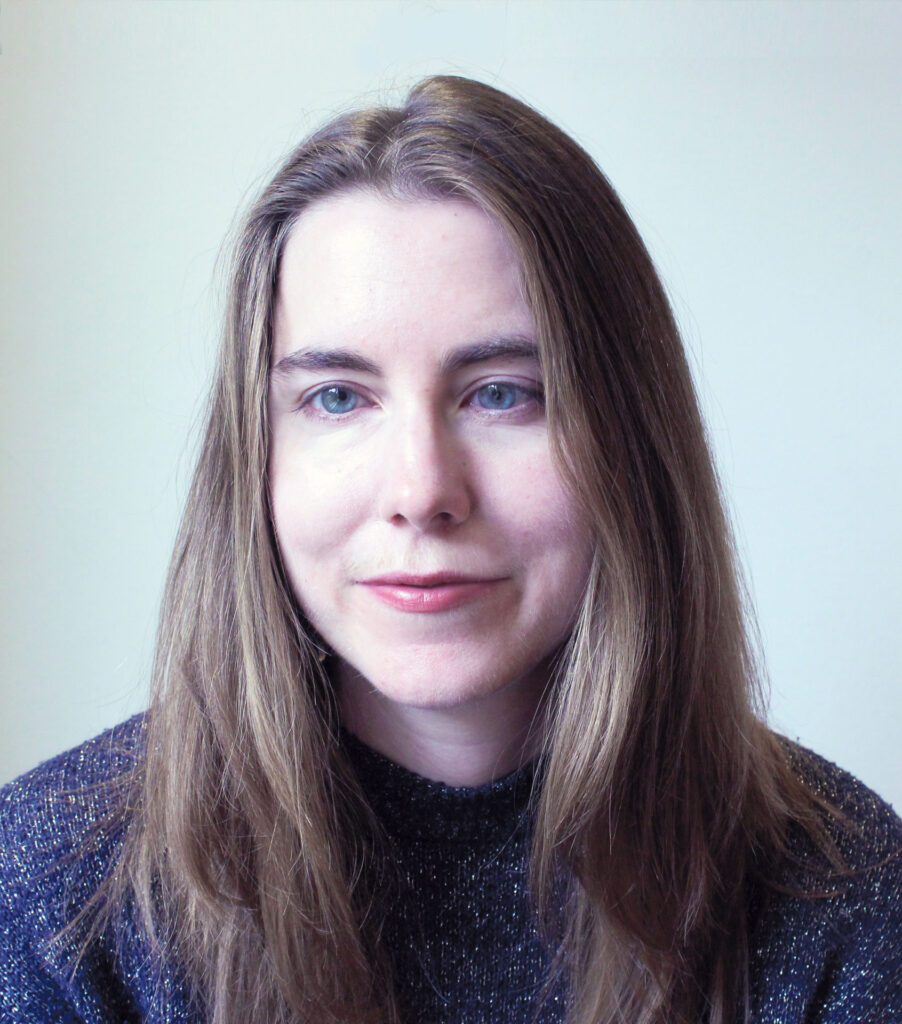

Head of Studies
Participants:
Nikola Stanišić
Nikola Stanišić published the plays Kavez za ptice (Scena, Sterijino Pozorje, 2022), Suze Svetog Lavrentija (National Library Ilija M. Petrović, 2019), the novel Uzurpatori (Nova Poetika, 2021) and the fairytale Divljaštvo princa Oriona (Feniks, 2021). He is the recipient of the Sterija Award (2023) for Kavez za ptice and the Slobodan Stojanović Award (2018) for Suze Svetog Lavrentija.
_________
I expect to approach a new perspective on theatre and the development of critical awareness.
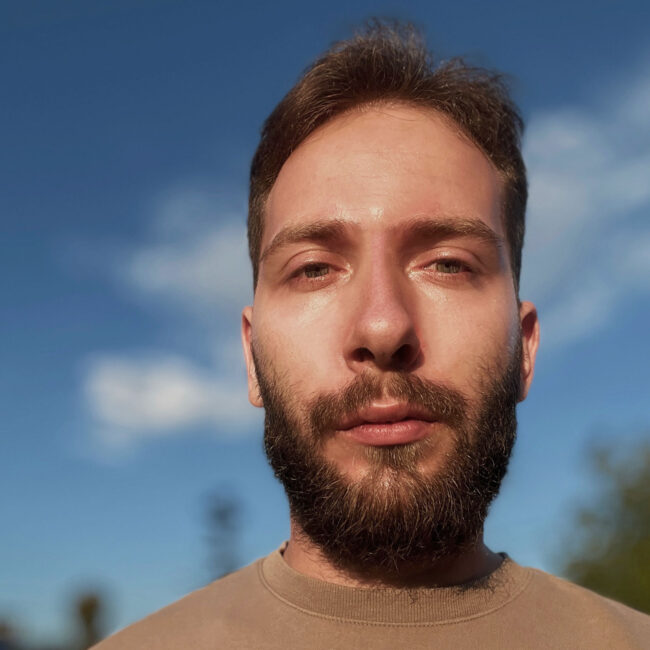

Katerina Markoska
Katerina Markoska is a devoted admirer of theatre, as well as a reviewer and translator of contemporary drama from North Macedonia, currently based between Skopje and Sofia. She is the founder of Theatre Scent, a platform offering accessible, audience-focused reflections on performances, aiming to connect wider publics with the unique atmosphere and profound impact of live theatre.
_________
I hope to deepen my understanding of theatre reviewing and criticism through expert guidance and practical training, while also learning from peers and building connections within the professional theatre community.
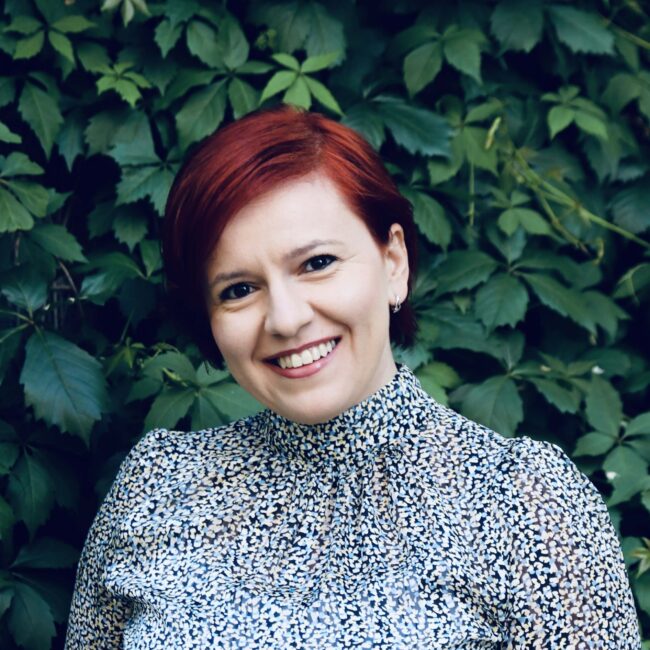

Matea Fajković
Matea Fajković, a first-year dramaturgy student with a background in digital media design (ui - ux design). Through my work in writing and visual arts, particularly painting and drawing, I try to explore themes of one's identity, trauma, and themes related to myths and adventure.
_________
As a participant in the critics program, I hope to deepen my critical thinking when engaging with the work of others, while also further developing my own artistic voice, writing style and skills. I expect that the program will offer valuable guidance and structure to support my further growth.
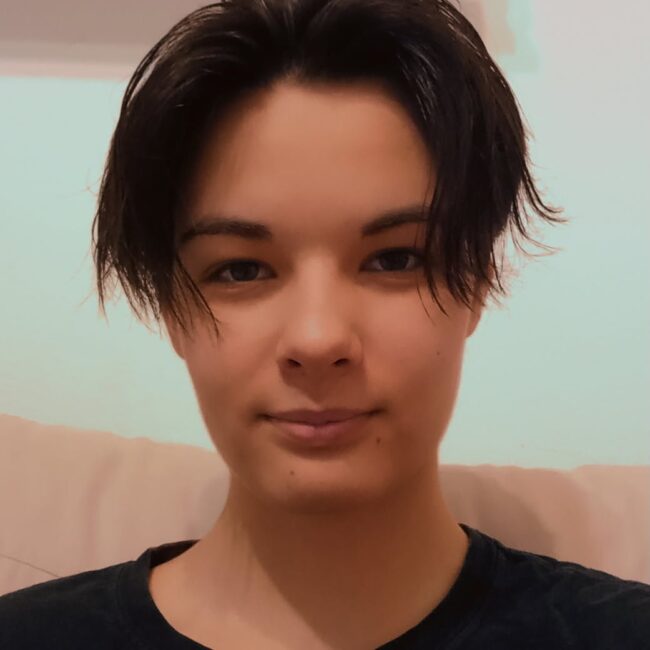

Đorđije Radulović
Đorđije R. Radulović is a writer, journalist, literary and theatre critic from Montenegro and Bosnia and Herzegovina. His critical work examines the intersection of aesthetics and ideology in contemporary theatre, with particular attention to post-Yugoslav cultural and political contexts.
_________
I expect the residency to offer a focused space for dialogue, reflection, and exchange on the role of theatre criticism in articulating complex social and artistic realities.
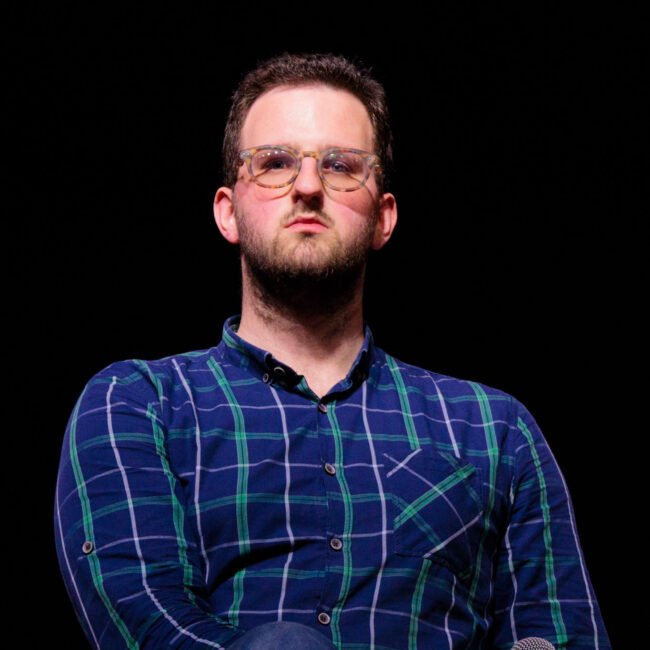

Ana Matić
Ana Matić is a Master’s degree student at the Department of Theory of Dramatic Arts and Media at the Faculty of Dramatic Arts in Belgrade, with a Bachelor's degree in Theatre and Radio Production and Cultural Management. Believing in the power of art, with which it communicates with its audience, and approaching theatre and its means as a transformative and proactive social tool, last September, she, alongside several final-year students from Belgrade and the Novi Sad Academies, established the independent Art Collective NIBIRU, witch aim is to focus on experimental artistic forms and original reflections within conventional dramatic structures and traditional theatrical condition.
_________
I see the Sarajevo Theatre Showcase residency as a vital and inspiring continuation of my education and training, an opportunity to gain a broader understanding of the field of theatre, insight into its contemporary developments, and a critical perspective on new artistic phenomena.
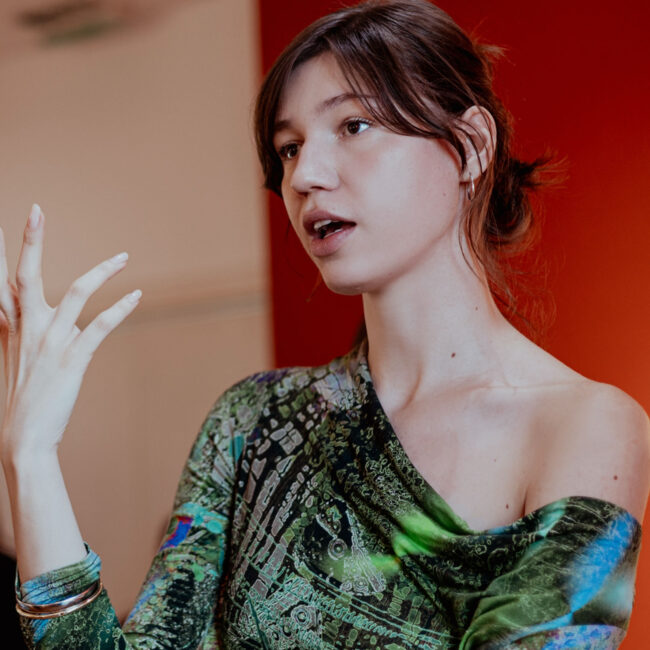

Berina Musa
Berina Musa was born 1995 in Oberhausen, Germany. After finishing her B.A. in German philology and Art history at the University of Freiburg, she moved to Sarajevo where she is currently studying dramaturgy at the Academy of Performing Arts and working as an online editor and writer for theatre and film.
_________
More than anything else, I expect to meet new people whose perspectives on contemporary theatre and performance will teach me to perceive the stage differently.
